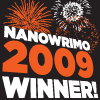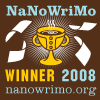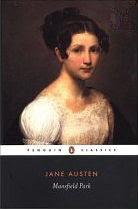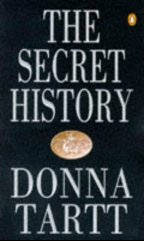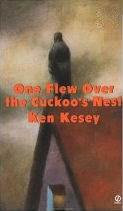2007 TBR Challenge #12
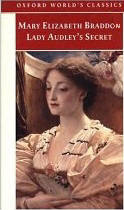 When Lucy Graham makes the leap from village governess to Lady Audley, her future seems secure. Her new husband dotes on her (even if her stepdaughter doesn’t) and as mistress of Audley Court she has all the fine things she could want. But her angelic facade hides a secret, one that could bring her new life crashing down around her ears. Her indolent nephew Robert doesn’t look like much of a threat, but the right motivation can work wonders. Her maid seems devoted, but has other, more pressing concerns. And the biggest, least expected danger of all is perilously close to arriving on her doorstep.
When Lucy Graham makes the leap from village governess to Lady Audley, her future seems secure. Her new husband dotes on her (even if her stepdaughter doesn’t) and as mistress of Audley Court she has all the fine things she could want. But her angelic facade hides a secret, one that could bring her new life crashing down around her ears. Her indolent nephew Robert doesn’t look like much of a threat, but the right motivation can work wonders. Her maid seems devoted, but has other, more pressing concerns. And the biggest, least expected danger of all is perilously close to arriving on her doorstep.
Whatever you expect a Victorian ‘novel of sensation’ to contain, you’ll probably find it here. Attempted murder, secret passageways, blackmail, abandoned children, family estrangement, false identities, madness, burglary, lies and deceptions galore . . . and that’s just off the top of my head. It doesn’t take a great deal of imagination to work out what Lady Audley’s secret is; the mystery is how and why she pulled it off and whether Robert will uncover the truth. And be able to prove it. There was also the question of what happened to George Talboys. The disappearance - apparently with a perfectly good explanation - of a friend he’d only recently encountered after years apart seemed not quite sufficient to spur someone of such inertia into such prodigious action. I only really accepted his actions after he abandoned the notion of quitting solely to stop George’s sister investigating by herself.
In some ways it’s reminiscent of The Woman in White, though from what I recall of Collins’s book, lighter on the detective story and heavier on the melodrama. But if you can overlook the frequent flights of descriptive fancy, it’s entertaining, especially when the mystery deepens and Lady Audley begins to fight back. I’m not sure about the ending, though; I still can’t decide whether she was telling the truth, but her fate was the best possible outcome for all concerned. Either way, she’s an intriguing character. The only woman in the book to outwardly conform to the Victorian ideal of decorative sweetness and light (as opposed to tomboyish Alicia, cold Phoebe and strong-willed Clara), she is the furthest removed from anoyne’s ideal and perhaps the biggest schemer since Becky Sharp - but much less likeable.
Rating: B
